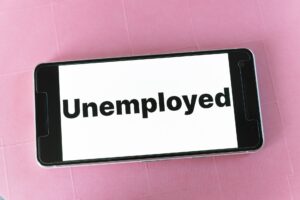Moving out for the first time is a big step in every adult’s life. It is something that must be very well planned for and executed. Today let’s share four things that will help you get started financially when you finally move out.
You need a stable and reliable income
The first thing that you definitely need is a stable and reliable income. By moving out, you are ideally transitioning from someone who did not have to pay monthly, or they were not mandatory, to having mandatory bills to pay every single month. You want to ensure that you have a stable source of income. In case you’re new to your job, you probably want to wait until you get confirmed, just so that’s a sure thing. I see most people wanting to move out the moment they get their first job or their first paycheck. This is not ideal. Things might backfire and you haven’t created financial safety net around.
If for instance you’re self-employed or you’re in business, a good way to know if your source of income is stable and reliable is to observe the income that you have made in the past six months. The average of that amount should be able to help you make the decision whether you are ready and capable to be paying your own bills on a monthly basis from your income.
You need to build adequate savings
The second thing that you need before you move out is you need to build adequate savings. And ideally, you need savings for three things. You need to save up for the initial deposit charge and at least one month’s rent. It is more prudent to give yourself a head start by saving up for the deposit plus at least three months’ rent. This will help you to get used to the situation without having to worry about paying rent for your new house.
The second thing that you need to build up savings for is the actual moving out cost. You will probably need to pay the movers that are going to be facilitating the move. And most importantly, the items that you need to get for your house. For some people, the bare minimum of moving out is a bed and a working kitchen. For others, they want the full package. If you want the full package, you definitely want to come up with an actual budget. Sit down with your Excel sheet and indicate the prices of everything that you need. It helps to window-shop and get the exact prices and even consider getting other items from family and friends.
The third thing that you need to save for is an emergency fund Most financial consultants recommend an emergency fund between 6-12 months, but in this case, as you are starting out, an emergency fund that covers 3 months will suffice. Remember, you are going to have bills to pay. There will be people demanding that you pay for things on a monthly basis. And sometimes it’s not always possible to talk them into waiting for another two or three months to sort out your issues.
Come up with an estimated monthly budget
The third thing that you need to do before you move out is to make an estimated monthly budget. After you move out, you will have rent, food, transport, utilities, and leisure to take care of. In your monthly budget ensure that you’ve first of all catered for all the mandatory bills. Your rent should not exceed more than 25-30% of your total income. A good budget must include mandatory bills and expenses. That’s obvious and it is what most of us have. The second thing that your budget must have is wants, givings and leisure. Here is where coffee dates, birthday gifts, and bereavement contributions fall. And then the third thing that you need to have on your budget, or you need to allocate for on your budget is savings, investment, and debt repayments.
If you want to be an adult who moved out and is also in control of your finances, then follow the 50, 30, 20 budgeting rule. 50% of your income should cater for your mandatory bills and expenses, 30% should go towards savings in investments and debt repays, and then 20% go to wants, givings, and miscellaneous spending.
Ensure your debt is under control and that you are saving
The final thing that you need to do is to ensure that your debt is under control and that you have some money going into savings every month without fail. Just because you have moved out, doesn’t mean that all your money now should be going towards paying bills and nothing but bills.
You don’t want to get into that vicious cycle of living paycheck to paycheck. To ensure that you have your debt under control and that you’ll have some money going into savings, ensure that as much as it depends on you, you leave below your means by following the 50, 30, 20 budgeting rule. This way, you are going to be setting yourself up to actually start a journey towards financial freedom and avoid the mess of living paycheck to paycheck.
If you earn KES 50,000 and it will cost you KES 45,000 to do the bare minimum of moving out, you are probably not ready. And if you have pending debts, it’s wise to put a hold on moving out and focus on clearing off the debt. The prospect of moving out comes with excitement but this is the time to be realistic and get your priorities right. Don’t get pressured to move out because if you can’t afford the place in the long run then moving out is of no use.







